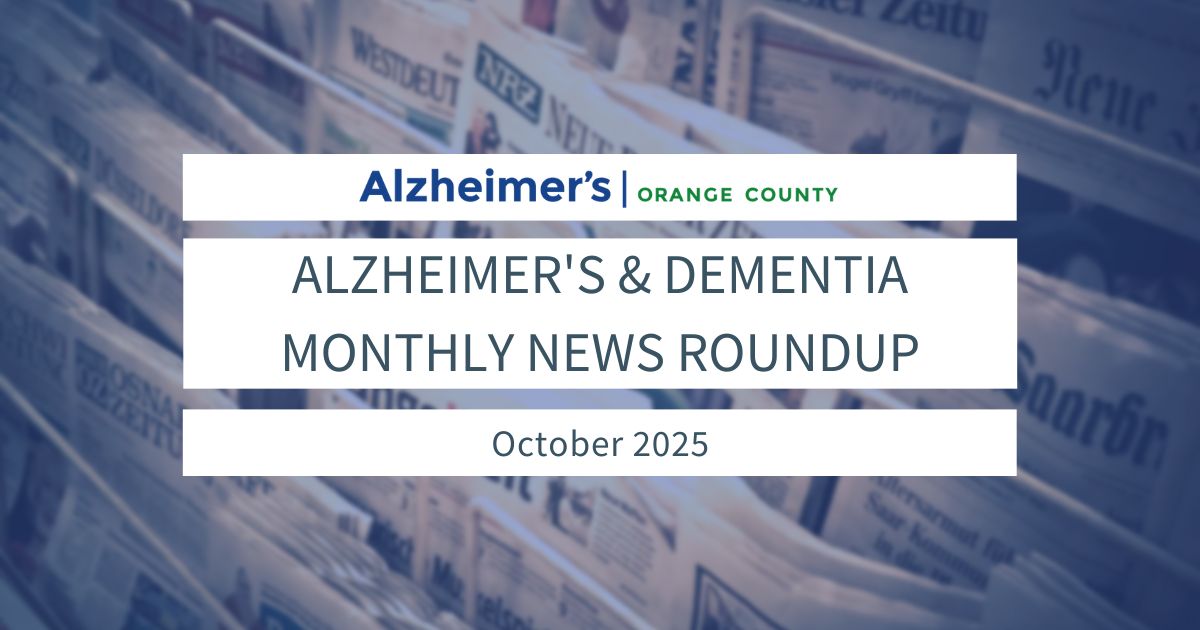A monthly recap of the latest news about Alzheimer’s and dementia
Dementia linked to problems with brain’s waste-clearance system
Researchers found that disruptions in the brain’s waste-removal process may explain why poor sleep and cardiovascular issues raise dementia risk. Read more.
Trying to keep your brain young? A big new study find these lifestyle changes help
New evidence shows that regular exercise, social connection, and healthy routines can slow age-related cognitive decline and support long-term brain health. Read more.
New AI Tools Reveals Genetic Link Between Memory Cells and Alzheimer’s
A new AI tool mapped genetic patterns in memory-forming brain cells, uncovering mechanisms that may explain how Alzheimer’s progresses. Read more.
FDA clears blood test to help rule out Alzheimer’s disease in people showing symptoms
The US Food and Drug Administration has given clearance to another blood test to help assess Alzheimer’s disease and other causes of cognitive decline, providing a broader understanding of when the disease can be ruled out. Read more
Cleaner air, healthier brains: study links air pollution to Alzheimer’s plaques and tangles
Scientists confirmed that air-pollution exposure is connected to the buildup of Alzheimer’s-related plaques and tangles, reinforcing the link between environmental and brain health. Read more.
Inside the first FDA-cleared stem cell trial for Alzheimer’s
A pioneering, FDA-cleared Alzheimer’s trial is testing whether stem cells from a person’s own fat tissue can be safely injected into the brain to slow or repair cognitive decline. Read more.
The Alzheimer’s escape artist: one man’s genetic miracle could hold the key to defeating dementia
Anyone who’s worried about Alzheimer’s disease should know about Doug Whitney. Doug is what researchers have coined an “escapee” of familial Alzheimer’s disease (FAD), the rare hereditary form of Alzheimer’s caused by inheriting mutations in one of three genes (APP, PSEN1, and PSEN2). Read more.
Intense mental exercise may be able to offset the effects of aging, research finds
A new study shows that cognitive training can increase the levels of a key chemical messenger in the brain responsible for decision-making. Read more.
‘Death fold’ proteins can make cells self-destruct. Scientists want to control them.
In Alzheimer’s, brain cells die too soon. In cancer, dangerous cells don’t die soon enough. That’s because both diseases alter the way cells decide when to end their lives, a process called programmed cell death. Read more.
Estradiol-containing MHT may impact Alzheimer disease-related biomarkers in postmenopausal women
Early findings suggest estrogen-based hormone therapy may influence Alzheimer’s-related biomarkers in recently postmenopausal women. Read more.


